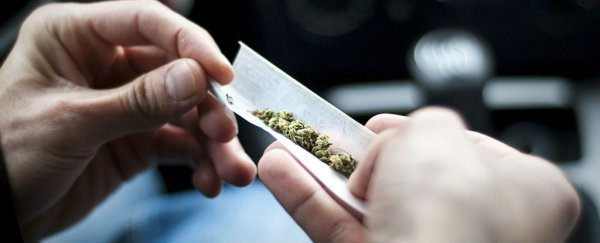A panel of 22 medical experts called together by Johns Hopkins University and leading medical journal, The Lancet, has released a report advising governments around the world to decriminalise all nonviolent drug use and possession.
The group urges governments to take a vastly different approach to illegal drugs in the future - one that's based on actual science. "The goal of prohibiting all use, possession, production, and trafficking of illicit drugs is the basis of many of our national drug laws, but these policies are based on ideas about drug use and drug dependence that are not scientifically grounded," said panel commissioner Chris Beyrer from the Johns Hopkins Bloomberg School of Public Health.
The comprehensive report will be presented at the UN General Assembly Session on drugs next month. It comes in response to a now almost-universal approach to drugs, initiated by US President Richard Nixon in 1971 when he formally declared the beginning of a "war on drugs" that would focus on eradicating and prohibiting illicit drugs, and punishing offenders with incarceration.
Five decades later, and experts are calling the strict, prohibitionist approach a colossal failure, the policies of which have "directly and indirectly contribute[d] to lethal violence, disease, discrimination, forced displacement, injustice, and the undermining of people's right to health".
The report, which also asserts that current drug policies are discriminatory against racial and ethnic minorities and women, advises that when the UN delegates meet next month to decide how to deal with drugs on a global scale going forward, they base their decisions on the available scientific evidence.
They assert that not only have numerous studies shown that current policies and laws have had no measurable impact on supply or use over a 50-year period, but thanks to countries like Portugal and the Czech Republic, which have already decriminalised non-violent minor drug offences, we have compelling evidence that a different approach can have positive results.
The report cites, "significant financial savings, less incarceration, significant public health benefits, and no significant increase in drug use" as the most significant changes brought on by these new policies, and urges that the US government and leaders from other countries "move gradually toward regulated drug markets and apply the scientific method to their assessment".
A key difference between the policies used by Portugal and the Czech Republic and those enforced in the war on drugs is a distinction between drug use and drug abuse, the experts state.
Right now, in most places on Earth, the law states that complete abstinence from illicit drugs is the only acceptable option, but all this does is push drug use into the shadows where the spread of disease is left unmitigated, and individual habits cannot be monitored by healthcare professionals.
It's also led to a strange dichotomy between illicit drugs, such as cannabis, and legalised drugs, such as tobacco and alcohol, stating that one is more dangerous than the other, when there is no scientific evidence to support such a distinction. In fact, studies have even pointed to the opposite as being true.
"The idea that all drug use is dangerous and evil has led to enforcement-heavy policies and has made it difficult to see potentially dangerous drugs in the same light as potentially dangerous foods, tobacco, and alcohol, for which the goal of social policy is to reduce potential harms," the report states.
Among the negative effects brought on by current policies, the report points to a "striking increase" in homicide rates in Mexico linked to the illicit drug trade; jails around the world - and particularly in the US - that are consistently at capacity due to incarcerated drug users; and higher rates of HIV and Hepatitis C infection.
Going forward, the report advises that governments around the world experiment with full legalisation and regulation of certain types of drug use, like a number of US states have done with marijuana in recent years, Christopher Ingraham reports for The Washington Post.
They say it's not something that can be done overnight, but a gradual move away from prohibition and towards a more measured, regulated, science-based approach is the best way we can deal with this global problem.
You can read the full report, published by The Lancet, here.
